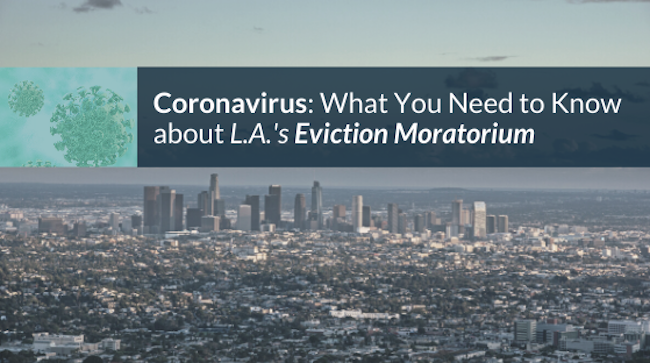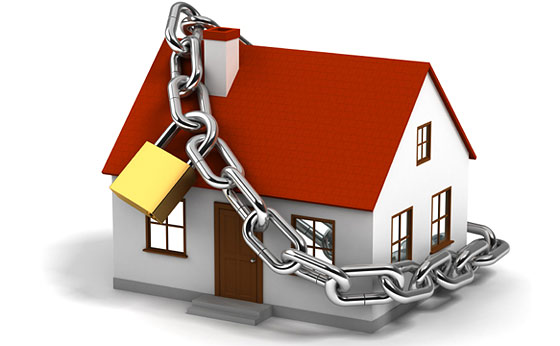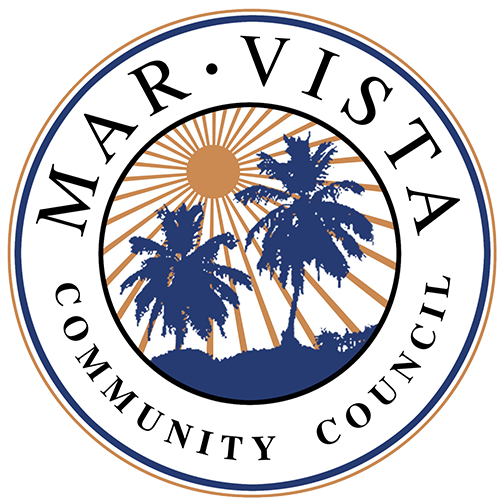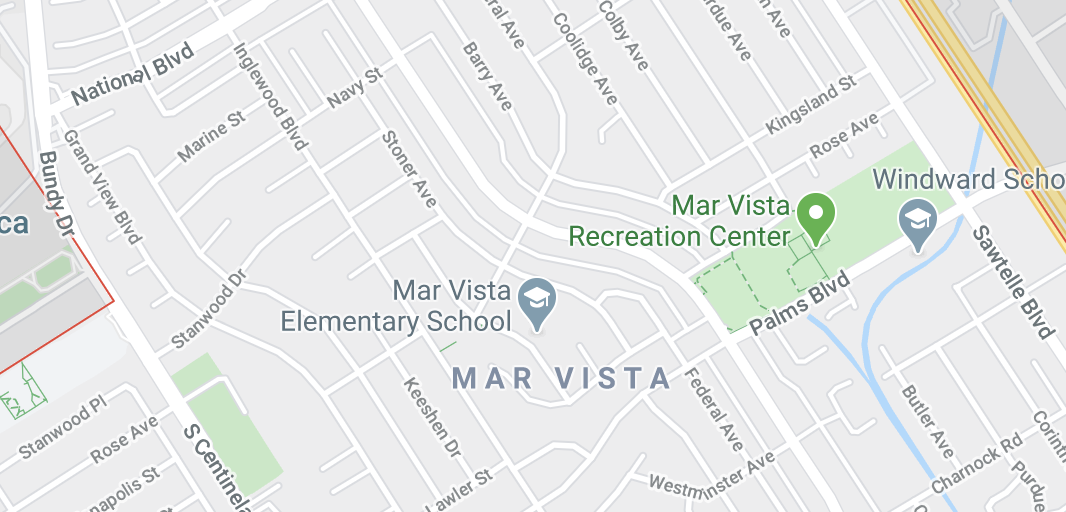COVID-19 Eviction Moratorium for Los Angeles
Posted on 04/02/2020

To assist residential renters who have been economically impacted by the Coronavirus, the Mayor and the City Council have adopted tenant protections on evictions and rent increases in the City of Los Angeles.
On March 11, 2020, the World Health Organization declared the Coronavirus (COVID-19) as a pandemic. On March 15th, Los Angeles Mayor Garcetti issued an Emergency Order which implemented measures to protect the public and contain the risk of contracting the COVID-19 virus. Additionally, on March 23rd the Mayor issued a temporary moratorium on evictions for non-payment of rent for tenants who are unable to pay rent due to circumstances related to the COVID-19 pandemic.
On March 30th, the Mayor halted rent increases on occupied rental units that are subject to the City’s Rent Stabilization Ordinance (RSO). Effective March 31, 2020, Ordinance No. 20-0147-S19 expands protections for tenants during the local emergency in response to COVID-19. Together, these actions are designed to prevent unnecessary housing displacement and to prevent housed individuals from falling into homelessness.
Summary of the protections in place for residential tenancies.
- No owner can evict a residential tenant for nonpayment of rent if the tenant is unable to pay rent due to circumstance related to the COVID-19, such as:
- Loss of income due to workplace closure or reduced hours due to COVID-19
- Loss of income or increased child care expenditures due to school closures
- Health care expenditures stemming from COVID-19 infection of the tenant or a member of the tenant’s household who is ill with COVID-19
- Reasonable expenditures stemming from government ordered emergency measures.
"Tenants are still obligated to pay lawfully charged rent."
However, during the emergency period, tenants may not be evicted for failure to pay rent due to the financial impacts related to COVID-19. Tenants will have up to 12 months following the expiration of the local emergency to repay any back rent due. On March 30, 2020, the City Council extended the repayment period from 6 to 12 months.
- No property owner shall exercise a No-fault Eviction during the Local Emergency Period. No-Fault evictions means those not based on an alleged fault of the tenant.
- No property owner may withdraw an occupied residential unit from the rental housing market under the Ellis Act.
- Landlords may not evict tenants due to the presence of unauthorized occupants, pets or nuisance related to COVID-19.
- Landlords may not charge interest or late fees on unpaid rent due to COVID-19.
Landlords are required to give written notice of the eviction protections to tenants within 30 days of March 31, 2020.
How will the City implement the residential eviction moratorium?
Affirmative Defense
Tenants facing eviction have an affirmative defense if the proposed eviction is for non-payment of rent and the tenant’s inability to pay rent results from circumstances related to the COVID-19 emergency. Tenants or their attorneys can raise the existence of this moratorium as a defense in an Unlawful Detainer action. Tenants and their attorneys may argue that they are an Affected Tenant by providing documentation to the Landlord that they have lost substantial income.
Examples of documentation may include, but are not limited to, a letter from the employer citing COVID-19 as a reason for reduced work hours or termination, employer paycheck stubs, bank statements, or school district notifications. Under the Governor’s Emergency Order, tenants should provide this notification to their landlord within 7 days of the rent due date.
HCIDLA Administrative Process
Additionally, the Los Angeles Housing + Community Development Department (HCIDLA) will intake tenant complaints and inform both landlords and tenants of the requirements of the eviction protections. HCIDLA will conduct an investigation similar to the existing process for enforcement of tenant protections under the City’s Rent Stabilization Ordinance (RSO).
Eviction complaints can be filed:
Electronically at: hcidla.lacity.org/File-a-Complaint
Telephone Hotline at (866) 557-7368.
Complaints will be assigned to a Housing Investigator, who will investigate the tenant’s claim and advise the landlord and tenant of their findings.
Questions and Answers
Who do the Eviction Protections apply to?
The Eviction Protections apply to all residential and commercial rentals in the City of Los Angeles, including apartments, duplexes, condominiums and single-family dwellings. The moratorium applies to all renters, regardless of immigration status.
Do the Eviction Protections apply to all evictions?
The current Emergency Order applies to:
- Residential or commercial evictions stemming from failure to pay rent when the tenant is unable to pay the rent as a result of loss of income related to the Coronavirus as outlined above. This advisory covers residential evictions only.
- All no-fault evictions. No-Fault evictions means those not based on an alleged fault of the tenant and include evictions for owner occupancy or installation of a resident manager.
- All evictions for permanent withdrawal of a property from the rental housing market (“Eliis” evictions). Tenancies may not be terminated under the Ellis Act until 60 days after the expiration of the Emergency Order.
- Tenants may also not be evicted for having an additional tenant, pet or nuisance as a result of circumstances related to COVID-29.
The Eviction Protections apply to nonpayment eviction notices,served or filed on or after the date on which the local emergency was proclaimed, March 4, 2020.
Does this mean tenants do not have to pay their rent?
Tenants are still obligated to pay lawfully charged rent. However, during the emergency period, tenants may not be evicted for failure to pay rent due to the financial impacts related to COVID-19. Tenants will have up to 12 months following the expiration of the local emergency to repay any back rent due. Landlords and tenants may mutually work out a payment schedule or arrangements for repayment of rent.
Is there rental assistance available for renters who cannot pay their rent?
The City is reviewing options for a rental assistance program. At the moment there is no rental assistance available. If and when rental assistance becomes available, updates and information on how to apply will be posted.
Where can tenants obtain help or information regarding a ‘Notice to Pay Rent or Quit’?
First, the eviction protections give renters an affirmative defense to tenants facing eviction as a result of their inability to pay rent due to the loss of wages as a result of the COVID-19 pandemic. Renters should seek assistance from legal services providers in responding to any Unlawful Detainer action filed by their landlords.Click here for Legal referrals.
Any tenant of a residential property in the City of Los Angeles who is unable to pay rent should inform their landlord as soon as possible before the rent is due or within 7 days of the rent due date and try to work out payment arrangements.
If a tenant receives a Notice to Pay Rent or Quit, they should inform their landlord that they are an Affected Tenant as a result of COVID-19 before the expiration of any Notice to Pay Rent or Quit.
Tenants may seek information and assistance from the Los Angeles Housing + Community Development Department (HCIDLA) by calling 866-557-RENT OR 866-557-7368, Monday - Friday, between the hours of 8:30 AM to 4:30 PM, and weekends, Saturday and Sunday, from 10:00 AM to 3:00 PM, or by filing a complaint online at: hcidla.lacity.org/File-a-Complaint.
What is a “No-Fault” eviction?
A “No-Fault” eviction is one which is not based on any fault or action of the tenant. Examples of “no-fault” evictions include evictions when the landlord or his family intend to move into the unit or when the landlord wishes to withdraw the rental unit from the housing market. These evictions are not allowed during the Emergency Declaration.
Additionally, evictions are not allowed during the Emergency Declaration, if the reason for the eviction is that the landlord wants to withdraw the unit from the rental housing market (“Ellis”).
What is an “At-Fault” eviction?
A tenant “at-fault” eviction is one based on the tenant’s actions in violation of the lease or rental agreement, such as failure to pay rent, causing a nuisance, using the rental unit for an illegal purpose, or a breach of a provision of the lease.
Evictions for non-payment of rent are not allowed through the Emergency Declaration, if the tenant’s inability to pay the full rent is due to circumstances related to COVID-19 as described above. Evictions are also not allowed for having additional occupants, pets, or nuisance as a result of the COVID-19 emergency.
What should I do if I cannot pay the rent or if my landlord tries to evict me?
If you are unable to pay your full rent because of circumstances related to the COVID-19 pandemic, here is what you should do:
- Do not leave your home.
- Let your landlord know as soon as possible that you cannot pay full rent because of circumstances related to COVID-19 and try to arrange another payment plan.
- It is best to alert your landlord before you miss a rental payment.
- At minimum, you must inform your landlord within 7 days of the rent due date.
- If you miss a rental payment or do not pay the full rent when it is due, the landlord may provide a “Notice to Pay Rent or Quit.”
- If you receive such notice, it is important to inform your landlord that the reason you were not able to pay full rent is because of circumstances related to COVID-19 before the expiration date or deadline listed on the “Notice to Pay Rent or Quit.”
What is the process to file an eviction complaint with HCIDLA?
- A renter contacts HCIDLA’s hotline (phone) 1-866-557-7368 or online hcidla.lacity.org/File-a-Complaint.
- A renter should provide a copy of the “Notice to Pay Rent or Quit” and documentation that the renter or household have been financially impacted by COVID-19, if possible.. Examples of documentation may include, but are not limited to, a letter from your employer citing COVID-19 as a reason for reduced work hours or termination, paycheck stubs, bank statements, doctor’s note, school notifications.
- Once a complaint is filed, it will be assigned as a case to a Housing Investigator.
- The Housing Investigator will investigate the claim and let the tenant and the landlord know that the eviction protections apply.
- In some cases, a signed affidavit may be used to support the tenant’s claim - stating that the tenant is not able to pay full rent due to circumstances resulting from the COVID-19 emergency.
What will the HCIDLA investigation do with my complaint?
If your claim is supported, the Housing Investigator will send a letter to the landlord requesting cancellation of the “Notice to Pay Rent or Quit.”
How Will HCIDLA review eviction complaints related to the COVID-19 emergency response?
Initial Review
- Verification of the tenant’s receipt of a “Notice to Pay Rent or Quit”.
- Review of the stated reason for eviction.
- Review of tenant’s documentation related to their loss of income as a result of:
- Workplace closure or reduced hours or services due to COVID-19.
- Child care expenditures or inability to work due to school closures.
- Health care expenditures stemming from COVID-19 infection of the tenant or a member of the tenant’s household who is ill with COVID-19.
- Reasonable expenditures stemming from government ordered emergency measures.
- Any additional factors relevant to the tenant’s reduction in income as a result of the COVID-19 emergency.
Tenants will be advised that they should provide their landlord with notice that they are an Affected Tenant as a result of COVID-19 before the expiration of any Notice to Pay Rent or Quit.
Determination and Communication to the Landlord
If a Notice to Pay Rent or Quit has been issued and supporting documents provided, then the Housing Investigator will send a letter to the landlord requesting cancellation of the Notice to Pay Rent or Quit. The letter will communicate that the tenant’s inability to pay rent stems from circumstances related to COVID-19, thus allowing the tenant to repay any back due rent up to 12 months following the expiration of the local emergency, or work out an alternate payment agreement with their landlord.
Post Investigation and Communication to the Tenant
- HCIDLA will provide thorough information to the tenant that can be used to support the affirmative defense in an unlawful detainer action. The tenant will also be provided with legal referrals, or can view a list for affordable or free legal assistance at hcidla.lacity.org/landlordtenant-legal-service-resources.
- Even with the Mayor’s moratorium on evictions, tenants are still required to pay rent.
- Tenants have up to 12 months following the expiration of the local emergency to repay any back rent due.
- The tenant and landlord may mutually work out a payment schedule or arrangements for repayment of rent.
What should tenants do if they receive an eviction notice?
Tenants should immediately inform their landlord that they cannot pay their rent or cannot pay their rent in full due to a loss of income arising from the COVID-19 pandemic. If the landlord does not withdraw the eviction notice, tenants should immediately file a complaint with HCIDLA at hcidla.lacity.org/File-a-Complaint or by calling 866-557-RENT (866-557-7368) between 8:30 a.m. - 4:30 p.m. Monday through Friday or 10:00 a.m. through 3:00 p.m. on Saturdays and Sundays.
What should I do if I receive a notice of an Unlawful Detainer?
If you reach the expiration date listed on the “Notice to Pay Rent or Quit” and are unable to work out a payment plan with your landlord or resolve your complaint with HCIDLA, you may receive a formal eviction or “Unlawful Detainer.” This means you may have to go to court to fight the eviction.
It is important to seek legal assistance in responding to any eviction or “Unlawful Detainer” action filed by your landlord. If a tenant is served with Court papers or an Unlawful Detainer action, they should immediately seek legal counsel and assistance in responding to the Unlawful Detainer. Legal referrals may be found at: https://hcidla.lacity.org/rso-legal-referrals-english-spanish.
"Do not ignore a notice from the Court or Unlawful Detainer notification!"
Tenants do not have to leave their units unless they are served with a Sheriff’s Order, which happens after the case is heard in Court.
How long are the Eviction Protections in effect?
The eviction protections are in effect from the date of the declaration of the emergency on March 4, 2020, through the expiration of the emergency. Ellis evictions are disallowed for 60 days after the end of the emergency declaration.
What happens after the Declaration of Emergency is over?
Under the Mayor’s order, tenants have up to 12 months following the expiration of the local emergency to repay any back rent due. The tenant and landlord may mutually work out a payment schedule or arrangements for repayment of the rent. HCIDLA will assist with repayment agreements.
Is there financial assistance for landlords who suffer a loss of income as a result of tenants’ inability to pay their rent?
Landlords may be able to apply for a disaster loan related to economic damage from the Coronavirus crisis through the Small Business Administration: disasterloan.sba.gov/ela.
Best Practices for Tenants and Landlords / Property Managers
For tenants
- Communicate with your landlord about your inability to pay if your income is affected by the COVID-19 emergency.
- Do not ignore any notices issued by the landlord or property manager.
- If you file a complaint (case) with HCID, be sure to comply with the requirements and documentation requested by HCID.
- All tenants are still responsible for any lawfully charged rents due.
For landlords and property managers
- Work with tenants, during the Emergency Declaration period.
- Communicate with the tenant about their ability to pay..
- Do not ignore the tenant protections in place.
- Thank you for helping to prevent the displacement of your tenants.
Tenants are still obligated to pay lawfully charged rent.
Action / process related to this moratorium may change, and will be updated accordingly.
Updated: 3/31/2020
References:
City Ordinance: Temporary Protection of Tenants During COVID-19 Pandemic - http://clkrep.lacity.org/onlinedocs/2020/20-0147-S19_ORD_186585_03-31-2020.pdf

Sign Up for to receive our Weekly Roundup via email for updates on MVCC and your community.
Click here to subscribe to our Newsletter and receive details of upcoming activities, meetings, and events of the MVCC.
We want to hear from you.
Your input means a lot. Feel free to contact us with your concerns and important information you want to share.

WEEKLY ROUNDUP & NEWSLETTER LIBRARY

Tips to Prevent Burglary

PREVIOUS POSTS

EMPOWER LA

ALERT LA COUNTY
Register your cell phone number, Voice over IP phone number, and e-mail address with the Alert LA County Emergency Mass Notification System.




